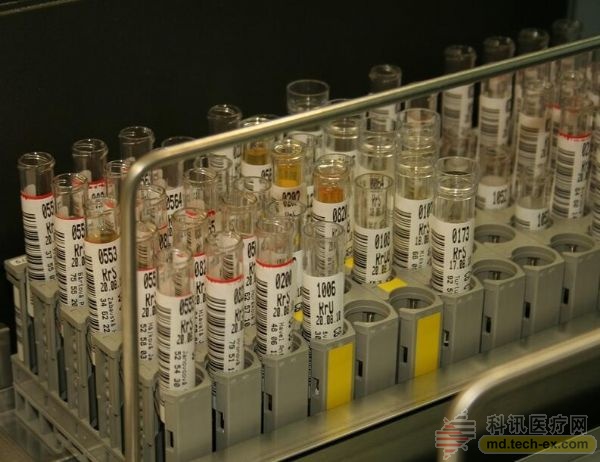Release date: 2016-12-20

Researchers report at ESMO Asia 2016 in Singapore that routine blood tests can predict the survival of cancer patients in palliative care.
Dr. Yu Uneno, an oncologist at Kyoto University in Japan , said, “There is an honest and accurate prognostic information for cancer patients in palliative care, but this information is sensitive and must be respected.â€
"Patients with advanced cancer and their families must make decisions about treatment, when life ends, and when to stop palliative chemotherapy," Dr. Uneno added. "Continuing ineffective treatment can be life-threatening, reduce quality of life, and delay hospice care. Referral and deprive patients of the chance of dying in their preferred location. Accurate predictions improve lifelong care for cancer patients and their caregivers."
Survival assessment can determine if medication should be given. Due to unpleasant side effects, cytotoxic chemotherapy is rarely given to patients who are not viable within a few weeks. Sedative midazolam is used to relieve symptoms in palliative care, but can be tolerated if administered for two weeks or longer. Therefore, chronic midazolam therapy can only be used in patients who may die within a few weeks, and is disabled when the predicted survival time is longer than one month.
Previous models used to predict subjective conditions for prognosis use, such as dyspnea, can be scored by a clinician. These conditions are evaluated once (for example at the beginning of treatment).
The current six Adaptive Prognostic (SAP) models use three laboratory measurements (albumin, neutrophils, lactate dehydrogenase) for routine monitoring by blood testing in daily clinical practice. The model can be used at any point after the start of treatment - this is an important feature because the patient's condition changes at any time. The six models were developed based on approximately 5,000 cancer patients who received chemotherapy at Kyoto University Hospital in Japan. They predicted a 1-6-month mortality rate for cancer patients receiving chemotherapy, and doctors could re-estimate the prognosis at any point after the start of chemotherapy.
Current research tests the predictive value of the model in cancer patients undergoing palliative care. It was designed as a sub-analysis of the Japanese Prognostic Assessment Tool Validation (J-ProVal) study, comparing the ability of four models to predict survival in patients with advanced cancer in the real world.
The analysis included 1,015 patients, of whom 385 were treated with palliative care in the hospital, 464 were treated at the palliative care centre, and 166 were receiving palliative care at home. The researchers performed a receiver operating characteristic (ROC) analysis to calculate the ability of the SAP model to predict cancer patient death in a palliative care setting. The area of ​​the curve (AUC) for predicting death within 1-3 months is 0.75-0.80.
Dr. Uneno said: "We found that the SAP model predicts patients' ability to die within one to three months, and predicts accuracy in 75-80% of cases. The SAP model is a promising decision-making assistant health professional and Patient model. Accurate prediction of survival allows patients sufficient time to prepare for impending death and is critical to planning effective palliative care.
Dr. Yang, a palliative care consultant at the National Cancer Center in Singapore, said: "The rapid growth of anti-cancer treatment means that cancer patients can receive multi-line chemotherapy, immunotherapy or targeted therapy, until the last few days of life, cancer patients may have positive Treatment. Prognostic information for cancer patients will help to weigh the benefits and burdens of further cancer treatment.
“Knowing the prognosis of a patient will help to weigh further treatments, not only for anticancer treatment, but also for the treatment of symptom relief. For example, predicting the onset and duration of pain relief treatment over time. We are increasingly aware of the survival time of cancer patients, and further research to explore their moral and psychological impact is also valuable."
Source: Noble
YT-H711
YT-H711
Shenzhen Sunshine Technology Co.,Ltd , https://www.yatwin.com